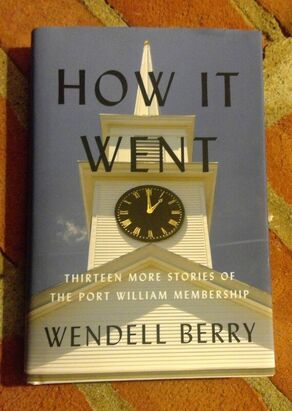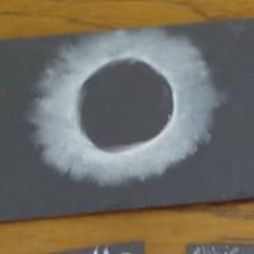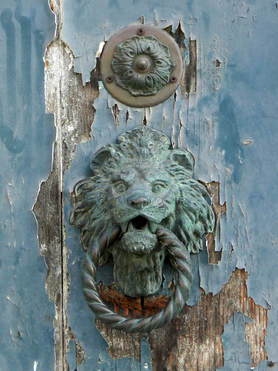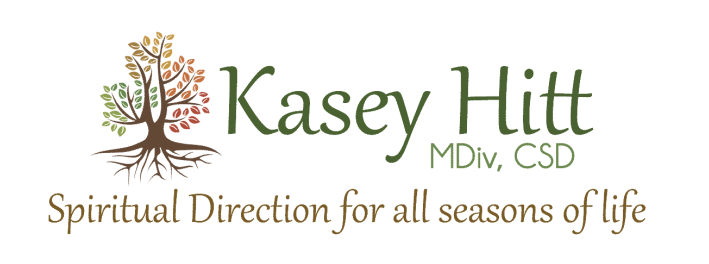 Driving down the road. Putting wet laundry in the dryer. Picking up a garden trowel. The quiet moment before falling asleep. A memory slips into your mind—their familiar whistle, particular look or smell, a phrase spoken…you remember and for a moment you re-member. The Port William Membership…if you don’t know what I’m referring to, it’s time to be introduced to Wendell Berry’s fictional town in Kentucky, its landscape and people. How It Went: Thirteen More Stories of the Port William Membership is his latest (and hopefully not last) book. I bought it for myself for Christmas and quickly read it, but like each of his Port William novels and short stories, they stay with me long after. Berry has a knack for describing the lived experience of the land and its people. Even if their particularities are not your particularities, you find yourself woven into their human experience. Stories of small town & farm-life, a barber and his shop, being a child or a parent during a world at war in the 1940s…they pull you in and draw you like a threaded needle into the fabric of your own life. With an ease that may surprise, you open your own memory box containing the people and places that have made you and many times, held you together. This particular book centers on an old man, a writer, looking back (like Berry himself). “Memories of times and places he had forgotten came back to him, reached him at last as if they had been on their way for a long time. He realized how fully and permanently mere glances, touches, passing words, from all his life far back into childhood, had taken place in his heart…” (p. 76). Andy Catlett remembers those no longer living and “yet by their absence his old companions have in a way come closer to him than they were when they were alive. They seem to involve themselves intimately in his life as he goes on living it” (p. 131). He sounds a lot like Saint John Chrysostom in the 4th century: “Those whom we love and lose are no longer where they were before. They are now wherever we are.” There are expressions of wit and wisdom that you have inherited. There are people whose presence, whether still with you in body or not, continue to bring comfort, encouragement, or perhaps curiosity! Pause for a moment:
___________________________ Just now as I finished writing, my son opened a can of sparkling water and the sound of his pouring it over ice took me back to childhood. I’m in 4th grade, pouring a cold glass bottle of Pepsi over ice and running it out to my mom who is push-mowing the front yard. I knew she loved the frothy fizz and wanted her to enjoy it that hot day. Although little fizz was left by the time she stopped and knelt down to drink it, I remember her look of appreciation, her joy in being remembered. To Get Started with Port William, look for these books: Jayber Crow Andy Catlett: Early Travels Hannah Coulter Nathan Coulter A Place in Time: Twenty Stories of the Port William Membership How It Went: Thirteen More Stories of the Port William Membership Kasey Hitt is a co-founder and instructor for Wisdom Tree Collective. She’s been a spiritual director since 2003 and has been reading Wendell Berry novels and poetry for just as long.
You can also find this blog and others from the Membership of Wisdom Tree Collective here.  Photo by Nathan Dumlao on Unsplash Two people in my life are facing a terminal illness. And here’s what else they have in common: gratitude. Every time I talk to them, whether a simple conversation or in spiritual direction, I am amazed at the depth of their gratefulness. Their faces light up. It is like their diagnoses gave them new eyes to see life. And they are overwhelmed by the beauty right in front of them. Even more so, they are overwhelmed by the peace of God inside of them. The windows of their souls reflect it in such delightful ways. “Every day I wake up so happy!” one exclaimed to me (without a single relationship or situation changing in their life). How is this possible? Much of it is pure gift. Grace. And some of it, I am sure, is because both have done inner work in the years leading up to this moment. They learned how to listen deeply to God and how to listen deeply to others. They entered into meditation and mindfulness. They learned to play and be playful. They sought out spiritual direction and a precious few others to accompany them along their inner journey. Now their outer journey reflects what they cultivated within. Awe. Humor. Peace. Kindness. Joy. (Just to name a few) I am honored to be a witness. They are teaching me a lot. One of their gifts is reflected in the Sufi poet, Rumi's words, “I saw grief drinking a cup of sorrow and said to it, ‘Tastes sweet does it not?’ Grief confessed, ‘You’ve caught me and ruined my business. How can I sell sorrow when you know it’s a blessing?’” If you have no idea how sorrow can be a blessing and if you do not wake up happy, maybe it is time for an inner journey of your own. There is so much to be grateful for in this life.  Photo by Damian Siodłak on Unsplash Photo by Damian Siodłak on Unsplash Choices can be difficult. Wanting to make the perfect one, I can struggle with “buyer’s remorse.” It can be about a purchase or any decision I have made or need to make (especially if others are concerned). Did I take enough time to make the best choice? What if I didn’t? Was I right? Was I wrong? I will replay the options. Especially if my choice does not please others, I will replay it even more. Sometimes it can become compulsive, stuck on a loop in my brain. We all have experienced the stress that comes from obsessive over-thinking. Over the years, I have tried a variety of ways to “throw a stick in the spokes” and stop the constant thought-cycle. The practice of Centering Prayer has been one thing that, gradually, has made a difference. Centering Prayer can be a challenge as one gets to discover all the places the unruly mind wants to wander instead of stay in the present (it is certainly not interested if the present has feelings it doesn’t want to feel!). As I have grown in acceptance of the brain’s (sometimes bizarre) escapades to do anything but feel reality and rest in God, I have grown in awareness of when I am joining its invitations to run away to the circus of compulsivity. Here are two simple ways of returning home:
The keys to both are patience and gentleness (two indicators or “fruits” of the Holy Spirit as described in Galatians 5:22-23). It may take a while, but with gentle persistence old compulsive paths will be less and less traveled. And relief will rise with your every return to the pathways of peace.  Photo by NeONBRAND on Unsplash Photo by NeONBRAND on Unsplash I’ve grown weary of all the talk about the heart in contemplative prayer. Sounds terrible, doesn’t it?! After all, the heart is the focal point of contemplative prayer! But after a while, my heart started getting angry, feeling the burden of such attention and expectation. Nineteenth century Russian mystic Theophan the Recluse said, “To pray is to descend with the mind into the heart, and there to stand before the face of the Lord, ever-present, all-seeing within you.” Teachers of prayer and contemplation, like Theophan the Recluse, have emphasized the heart and taught various ways of guiding us to pray from it. I have learned and offered others various ways of integrating such prayer, especially through the imagination as we bring our attention to the heart. But I did not realize how much modernity was still operating under the surface. Contemplative prayer was such a welcome relief for me after prayer that emphasized the “head” with its words, whether thought or spoken. With the latter, once one had invited Jesus into or given Jesus their heart, the focus was on knowing the right beliefs and acting accordingly. All that was needed for prayer was found from the neck up (and the rest was not to be trusted!). This disconnect was not unexpected. When modernity ushered in a time of dissecting in order to discover, the heart became associated with a particular organ in a particular location. Where is the heart? It’s in the chest, of course! It’s job is to pump blood (and woe to the person who trusts any feelings associated with it!). The earliest Biblical people did not think of the heart (lev) in this way. The “heart” of a person referred to the “seat of all of life.” When told to “love God with all of your heart,” this included one’s mind, soul, and strength. For the ancient people, the heart was the whole of a person—feelings, thinking, understanding, will, and wisdom. Since the heart was the center of one’s existence (physically, mentally, and emotionally), to love God with one’s heart was to allow God to be at the center of one’s whole self (body, mind, and soul). What is at our center directs our life. Tapping into and resting in that center with God is the playground of contemplative prayer. However, modernity broke up this inherent unity to study and evaluate the diversity of the parts and it elevated the mind above all else. Contemplative prayer with its emphasis on the heart, invited the mind to descend from it's place of self-sufficiency and recover humility. But, if modernity is still the framework, the draw is to elevate one part over the others, this time placing the heart on a pedestal rather than locating it within the whole. During a time of meditation with a Buddhist, I was not guided to focus on my heart, but to discover any place of openness or peace within. Hearing her words offered me an unexpected ah-ha moment! I immediately was transported back to the Hebraic view of the heart. As I listened to the whole of my body and not just one part, I discovered the burden on my heart and tension in my chest began to dissipate. (Last week I mentioned this inner co-dependency with the heart.) I chuckled as I noticed the openness was in my face, particularly my cheeks. Another time the openness was in my gut, still another behind my eyes. All of these places were open to God but I was unable to see them for my inner eyes were focused on one place! So much wisdom just waiting to be discovered. When God infuses all of oneself, all of oneself is a channel to experience God. The heart is found everywhere, not simply in one physical location. Where am I best able to listen to the heart of God today? I notice an openness in my hands. Through my hands, the heart of God has something to say to the heart of me. Through my hands I listen and offer a prayer.  Photo by Mark Lawson on Unsplash Photo by Mark Lawson on Unsplash There are some poems & places where the images stay with you. When September arrives, Postscript, by Irish poet, Seamus Heaney, is one of those poems for me. Read or listen and watch below. Postscript And some time make the time to drive out west Into County Clare, along the Flaggy Shore, In September or October, when the wind And the light are working off each other So that the ocean on one side is wild With foam and glitter, and inland among stones The surface of a slate-grey lake is lit By the earthed lightning of a flock of swans, Their feathers roughed and ruffling, white on white, Their fully grown headstrong-looking heads Tucked or cresting or busy underwater. Useless to think you'll park and capture it More thoroughly. You are neither here nor there, A hurry through which known and strange things pass As big soft buffetings come at the car sideways And catch the heart off guard and blow it open. __________________________ I remember being at a Nebraska rest stop during a wind storm on my way to Seattle from Cape Girardeau, Missouri, a cross-country move fraught with break-downs, both literal and metaphorical! As I was getting out of the car, the wind caught my driver's side door and blew it wide open. In that moment, all the stress, frustration, and anger that I usually succeed in keeping under wraps stormed to the surface. Much to my surprise, I started raging into the wind as my hair whipped all around! For any witnesses, I am sure it was a sight to behold. I felt both powerful and powerless. It’s a moment I will never forget. And while I have no desire to return to that rest stop in Nebraska, I return to the story quite often! There have been other times my heart has been caught off guard and blown open by unexpected beauty, love, and goodness. Sometimes they have been ordinary moments, sometimes extraordinary—from receiving a tender touch from my spouse after a fight (and it relaxing my defenses) to experiencing an ecstatic vision of being swept up in the Wave of Love (and it changing everything). Whether ordinary or extraordinary, surprises like these are heart-softening and heart-opening. There are places I make a point to return to because they are the places of these heart-softening and heart-opening moments. I had not been expecting anything (or at least I thought I knew what to expect) and suddenly something unforeseen and unplanned happens to “catch the heart off guard and blow it open,” changing that time of year, that place, and me, forever. I cannot help but encourage others to go and see (& experience) these places for themselves—from monasteries to places in nature--especially in September and October. How about you? What are your moments that have caught your heart off guard and blown it open? Where would you suggest someone make time to go to during September or October? Hospitality
is the heart of Spiritual Direction A holy welcome saying, "Your soul is safe here." Free of judgement or agenda Suspending disbelief and storylines Creating space at the Table within for the wild, unpredictable Spirit Who certainly knows you better than I know you, and even better than you know yourself Who has always been and yet is always being sent To companion, comfort, heal, grow, and guide Helping you notice and taste goodness and truth in, around, and through you That you may learn to trust (maybe be surprised by!) your experience and the invitations of this Inner Voice of Love Who brings good fruit from the Wisdom Tree to the celebration of your Authentic Presence who knows what you need in this moment at the Table of Divine Nourishment. One day last week, I had just begun my twenty minutes of silent meditation, known as Centering Prayer, when I began to hear the sound of a synthesizer from 1986. Not long after, I heard the voice of El DeBarge sing out, "Who's Johnny? she said and smiled in her special way..." I was not smiling. I couldn't even remember the last time I heard this song. Maybe you can't either. For a refresher, I've posted the video below so you can better imagine this scene with me...go ahead, have it playing while you continue to read. I certainly didn't expect to hear it during my time of Centering Prayer! My husband had no idea I was downstairs in silent meditation. I had no idea why he was listening to El DeBarge in the room beside me (especially early in the morning)! I was just about to yell, "Hey, what in the world are you doing? I'm in the middle of centering prayer!" when suddenly I remembered some words from author and former Trappist monk, James Finley. I had been reading his book, Christian Meditation: Experiencing the Presence of God and he repeatedly addresses external and internal distractions that occur during silent meditation. When they come (as they always have and always will because we're human), Finley advises that we:
Here was an excellent opportunity to enter more deeply into Finley's words and into my meditation practice! So I internally gave El DeBarge permission to endure and returned to an inner meditative awareness. What was I aware of inside? It certainly wasn't a peaceful calm! It was anger and annoyance! I wanted to yell out, "Hey! Enough of El DeBarge already!" Perhaps a deeper, inner curiosity won out because rather than resist them, I decided to allow my feelings of anger and annoyance to arise, endure, and pass away. They endured a long time. When the feelings did pass, a thought took their place. This thought pointed out how much I want (even demand) things to go my way...or else! I expected silence with no distractions for 20 minutes and the moment I did not get what I wanted, my anger surged to the surface! I don't know about you, but when I have an expectation, I tend to expect it to turn out like I envisioned (perfectly). And if it doesn't, I just know it will be ruined (or at least that's how my thinking goes). Have you ever considered how much you internally (or externally) demand things go your way? One of the benefits of meditation is one becomes more aware of things like this! Though insightful, this thought wanted me to cling to it and spend time mulling it over, perhaps devise a plan for transformation or soak in shame. Instead my time of meditation was inviting me to let ALL arise, endure, and pass away. In specific Centering Prayer language, the moment I notice I'm engaged with (clinging to) the thought, I gently return to my sacred word, the symbol of my intention to consent to God's presence and action within. Entrusting all of my responses and reactions (and plans for transformation) into God's hands, I allowed myself to return to the deepest truth offered in the present moment--I am fully loved by God just as I am. The humbling thought about my expectations eventually passed away and there was a brief calm (but even that is not to be clung to!). I would like to say I continued to neither cling to nor resist any distraction, that I allowed every external sound and internal feeling, thought, memory and bodily sensation to arise, endure, and pass away. BUT, half-way through Scritti Politti singing their 1985 hit, "Perfect Way"...
 A sample of eclipse art from my daughter's once in a lifetime Eclipse Birthday party! A sample of eclipse art from my daughter's once in a lifetime Eclipse Birthday party! Like a blazing sun your light shines... my fears flee from your sight, your fire consumes them. Psalm 21:9 Yesterday was my daughter's birthday. An eclipse-chasing friend of ours in Seattle has been reminding us of this epic birthday since we first announced we were moving to Tennessee. He's most certainly an eclipse prophet, for it absolutely lived up to all the hype he continually forecasted for 9 1/2 years! Given it's the day after, you've already proclaimed, heard, or read the descriptions like unbelievable, beautiful, incredible, amazing, epic... And having a birthday fall on the eclipse was a once-in-a-life-time event. But the scene I want to recall isn't about my daughter's "totality" cool birthday, but my 7-year-old son's experience of totality. During the partial eclipse we sat on our porch, watching my 11-year-old open some gifts and taking "moon bites" out of cucumber slices then checking the moon's progress to see who guessed correctly. We also read Psalm 21 in Nan Merrill's Psalms for Praying. We couldn't help but laugh as we read verse nine...perfect, even the Psalms were in alignment. My son was super excited, describing how big of a bite the moon had taken out of the sun, checking NASA's website and announcing when we could see the sun's corona in Oregon. Then 7 minutes away from totality here in the Nashville-area, he melted down in absolute terror. With the shift in temperature and light, overwhelming fear descended upon him as he became aware that he was about to experience for himself what he had only read or talked about or experienced through the stories of others. Being in total darkness during the daytime and seeing the diamond ring effect in-person sank into his little mind. He was nearly inconsolable as we all laid down on a blanket in our front yard to look up into the sky through eclipse glasses. All of us were trying to pay attention to the moon while at the same time reassure him. Even as he was being held tightly by his daddy, he was still yelling, "I'm scared, I'm scared!" as the sun and moon approached perfect alignment. Then totality happened. We took off our glasses and gazed at a sight so other-worldly that we sat bolt upright. At that very instant, his fears fled just like the Psalmist said they would! He then proceeded to melt down because after seeing it, he wanted more than a taste (just as the Psalmist said he would)! As a spiritual director, I witness a similar scene with silent retreats. People sign up for a silent retreat full of anticipation. It is something unique they have never done before and in this culture it's also very rare (even among Christians). They tell friends and family who laugh or scratch their heads not knowing why someone would pay to go be in silence! Then the day comes. It's about to become real. Some are nearly hyperventilating due to anxiety (that's no exaggeration). Getting ready to head into extended silence for the first time brings all kinds of fears to the surface. Yet at some point, as they slowly sink into the Silence, they begin to align with the Spirit of God within them (who has been there the whole time, holding them even as they've inwardly screamed, "I'm scared! I'm scared!"). Then totality happens. And this indescribable union with the Beloved sends their fears fleeing. At the end of the retreat, the very people who were so full of panic at the beginning are now in tears because they want the experience to last longer. They find themselves fumbling to find the words to describe what their tears are already saying...that was epic.
What would you call a man who shovels his driveway in a blizzard?
How often I am like that man! Any season of the year, I can be caught with my proverbial shovel in hand. This morning I'm thinking back to another man. A farmer who was also a pastor of one church and a handyman for another. Keep this fact in mind. He used to begin his mornings sitting in the dark, seated at a table in silence (or I began my mornings seeing him seated in the dark at a table in silence). Only a coffee mug close at hand. The first time he startled me. Six in the morning. I was in the building earlier than any other staff member (I had thought). Certainly not expecting to see the shadow of someone in the side room! But soon I became accustomed to him sipping his coffee with the lights out. Not moving until the sun came through the window. I came early with an armload and head-full of work to get to, I had no time to sit and stare. Rumor among our large staff was that he was lazy. They, too, would see him sitting while they rushed in and out of their daily blizzard of ministry activity. Who had time for such an outlandish thing? One day I stopped and asked him what he did in the silent darkness of the church basement. He smiled and after taking a sip said, "I wait and let the pieces fall into place for the day."  What do we do with deep questions? While similar to last week's Trading Theological Certainty for Freedom, rather than inviting us to ask the questions, I want to consider what to do once a difficult question is voiced. Why? Unfortunately we're masters at offering too simplistic of answers and explanations whether in conversation or from the pulpit. Instead, let's keep a few things in mind and heart: Be wary of easy answers. Whether you are on the giving or receiving end, an easy answer is often not a gift. Writes poet-philosopher David Whyte in his poem Tobar Phadraic, "Be impatient with easy explanations..." Indeed! Have you ever cringed, felt a shot of anger or been further weighed down when you've read or been offered an easy explanation? You may have wanted to shout, "What I'm wrestling with isn't that easy, if you can't do better than that, don't say anything at all!" If tempted to give an easy answer in response to a person's painful situation or deep question, bite your tongue (especially if it's getting ready to spout "spiritual" words) and offer your simple presence instead! And if said person longs for you to give them an answer, let Rich Mullins' song lyric from Playing Hard to Get be your guide, "And I know it would not hurt any less, even if it could be explained." Live the questions. Jesus put it this way, "Ask and it will be given to you; seek and you will find; knock and the door will be opened to you. For everyone who asks receives; the one who seeks finds; and to the one who knocks, the door will be opened" (Matt. 7) He just doesn't tell us when or how. So we're to continue to ask, seek and knock. Rainer Maria Rilke put it this way, "I would like to beg you dear Sir, as well as I can, to have patience with everything unresolved in your heart and to try to love the questions themselves as if they were locked rooms or books written in a very foreign language. Don’t search for the answers, which could not be given to you now, because you would not be able to live them. And the point is to live everything. Live the questions now. Perhaps then, someday far in the future, you will gradually, without even noticing it, live your way into the answer." You can read even more in his 1908, Letters to a Young Poet. Engage the imagination, body, intuition and other people. You live the questions by living them with your whole self in the whole of life. This is not some mind game or exam you'll be quizzed on later with a passing or failing grade (though there's bad theology out there that resembles such!). Listen to your dreams, both the daytime bidden and the nighttime unbidden. Your body has something to say to your questions, why not listen? You know those inklings, suspicions, gut feelings and hunches? Don't toss them out, they, too are valuable companions. And find at least one safe person, whether a spiritual director, close friend or family member, to engage in soul-shaping conversation. Saint Basil of Caesarea once wrote, "God the Creator has arranged things so that we need each other." In other words, we do not have to ask, seek, and knock alone. I hope you weren't expecting a black and white explanation of how to respond to deep (and rarely black & white) questions! Whether you are asking or listening to the question, may you enter in with your whole self finding the question or difficult situation a doorway leading deeper into the transforming, life-giving Mystery.
|
AuthorKasey is a scarf, ball and club juggling spiritual director just outside of Nashville, TN. Play helps her Type-A, Enneagram 1 personality relax, creating space for poetry and other words to emerge. She also likes playing with theological ideas like perichoresis, and all the ways we're invited into this Triune dance. Archives
January 2024
Categories
All
|
By clicking “Sign up for E-News” I consent to the collection and secure storage of this data as described in the Privacy Policy. The information provided on this form will be used to provide me with updates and marketing. I understand that I may modify or delete my data at any time.


 RSS Feed
RSS Feed

